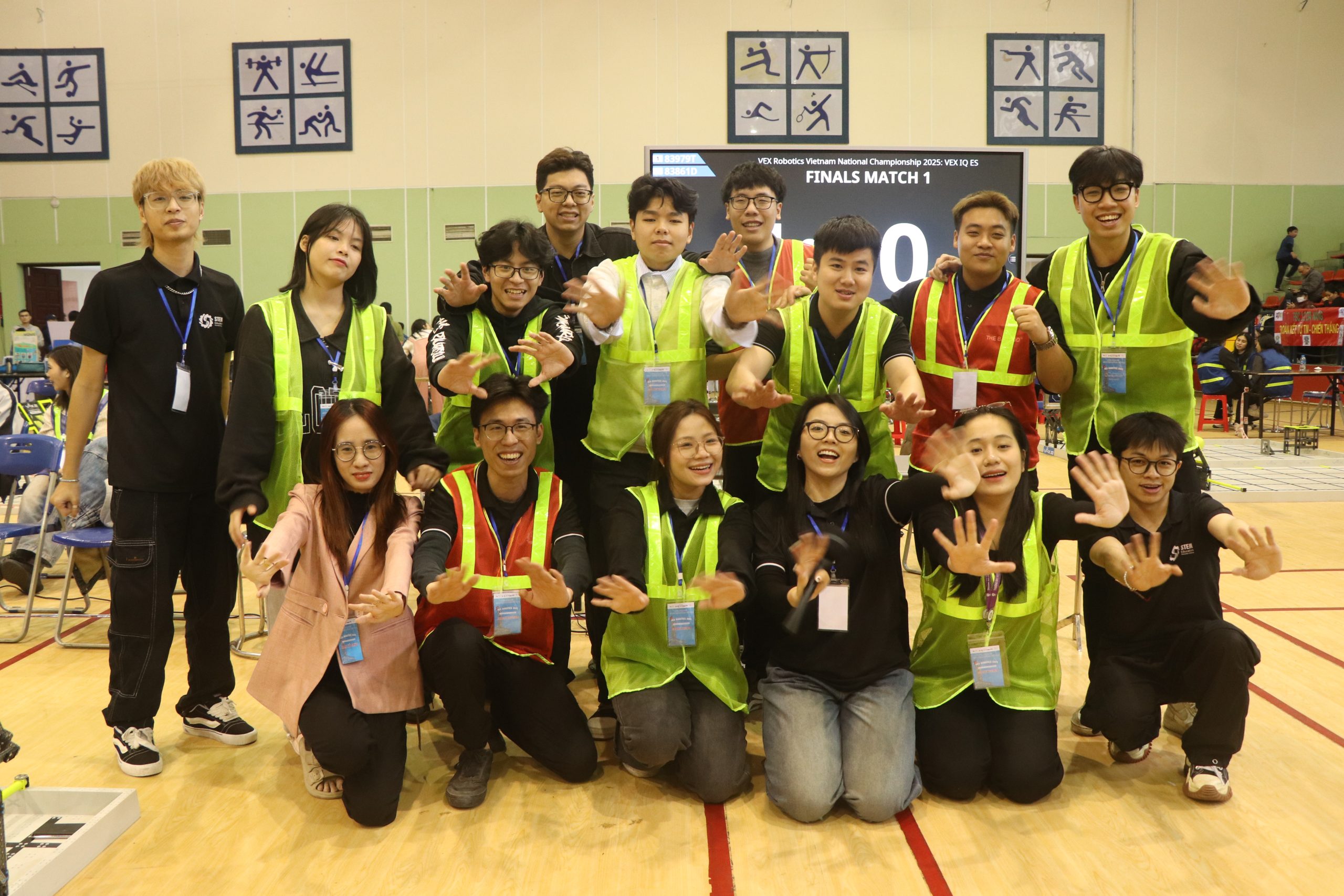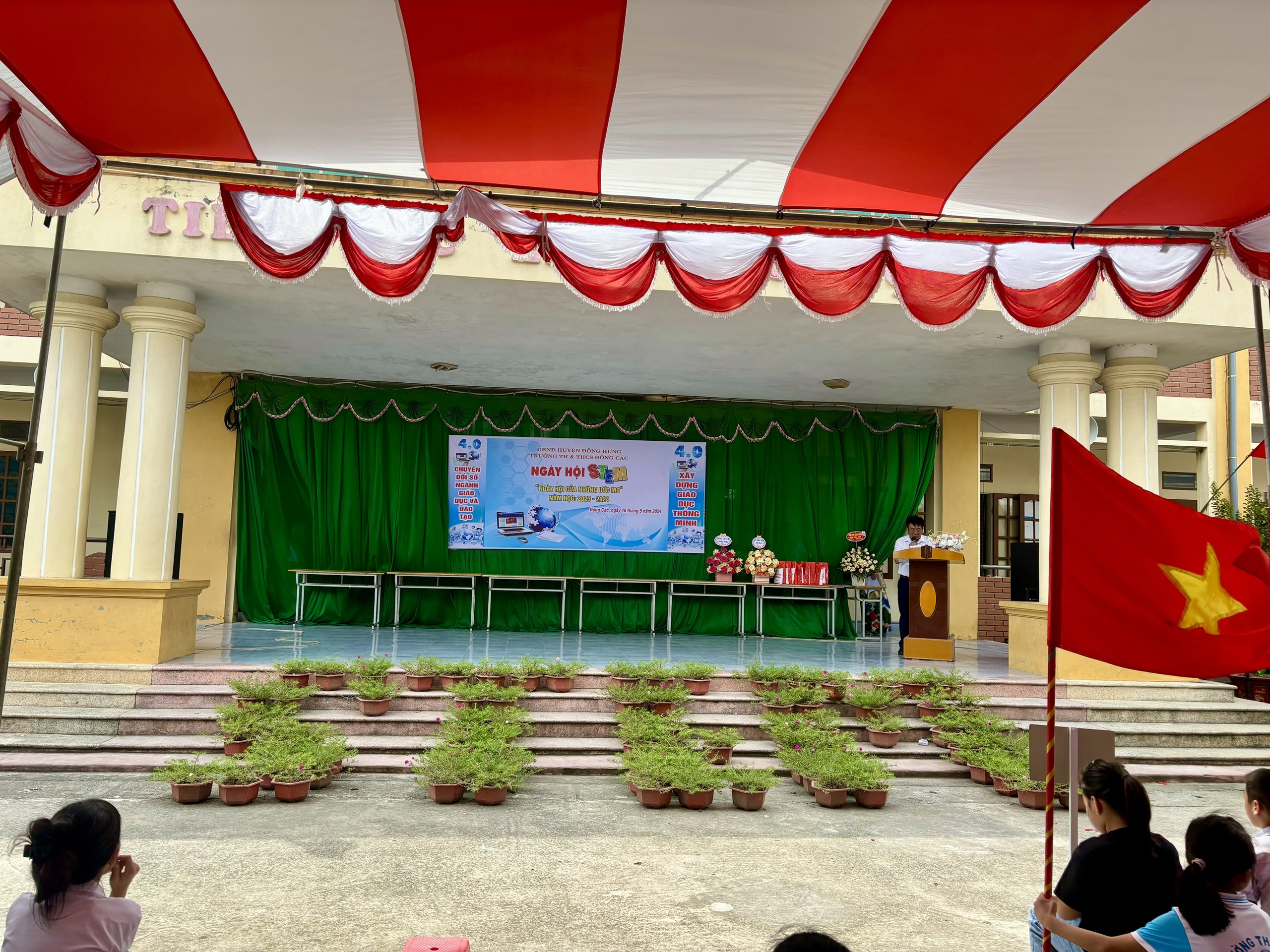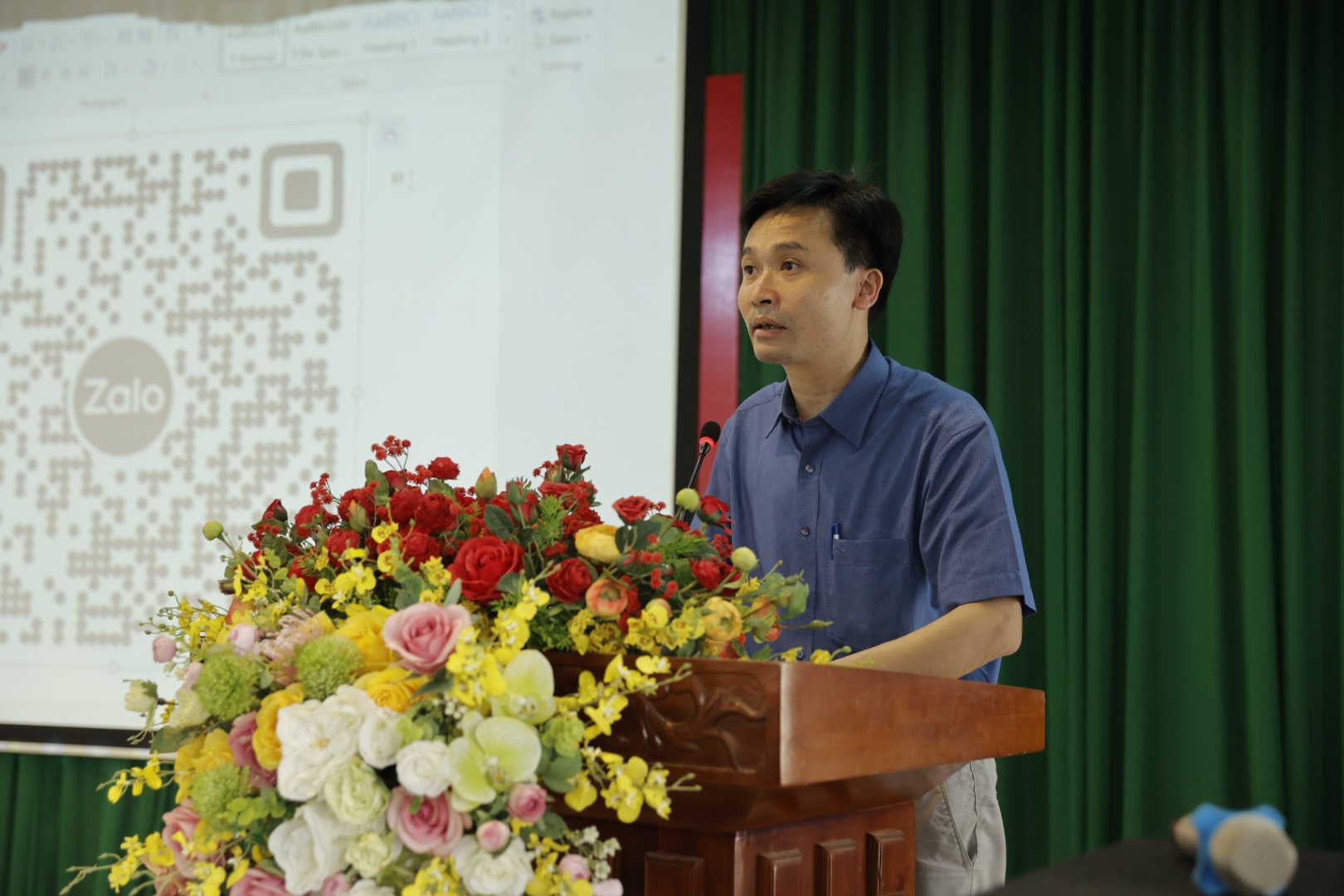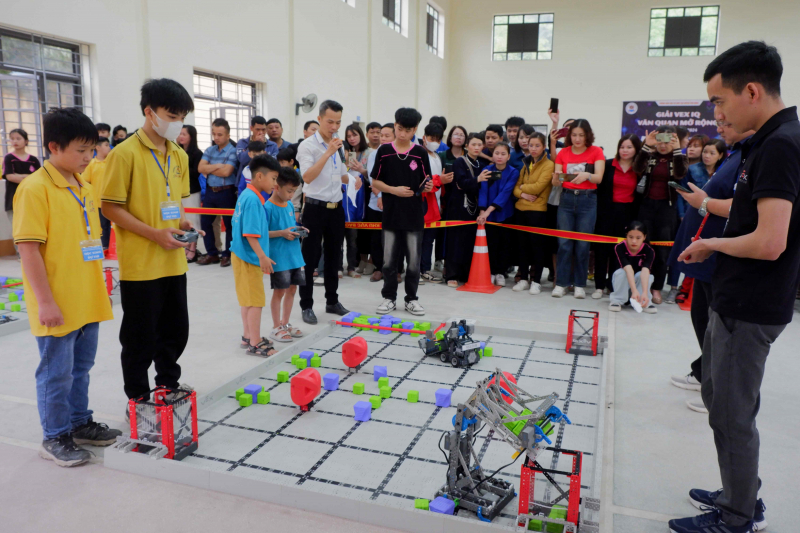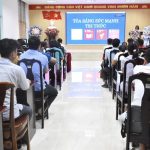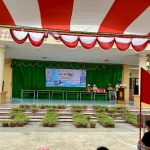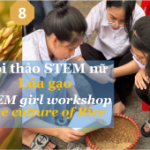STEM girl workshop: The Science of Rice
Thai Binh Province – The “rice bowl” of Northern Vietnam
On May 18, 2024, the Girls’ STEM Workshop: The Science of Rice was held at Dong Cac Secondary School in Dong Hung District, Thai Binh Province. The workshop aimed to inspire female students to explore the world of science and technology through the theme of rice, an essential food and significant part of Vietnamese cultural heritage. The workshop included a series of engaging, hands-on activities designed to provide practical learning experiences and deepen students’ understanding of rice and its socioeconomic importance. Thai Binh Province, renowned for its tradition of wet rice cultivation, offered an ideal setting for a STEM workshop focused on rice. Hosting the workshop here held not only geographical significance but also deep cultural value. Thai Binh has long been known as the “rice bowl” of Northern Vietnam, with vast rice fields and advanced farming systems.
Rice Production Industry
The wet rice civilization is a unique agricultural system that has played a crucial role in the development history of Asian countries, including Vietnam. This civilization has driven the advancement of wet rice farming techniques, such as irrigation systems and agricultural tools, leading to food surplus, the formation of villages, and the cultural identity of Southeast Asian nations. Continuing this tradition, Vietnam today develops its rice production industry as a key sector in agriculture, ensuring food security and creating high-value export commodities. In 2023, Vietnam’s rice export turnover reached USD 3.72 billion, making it one of the world’s leading rice exporters with continuously increasing export turnover.
In the opening session of the workshop, students learned about the wet rice civilization, the current role of the rice production industry, and the interest of the younger generation in rice cultivation. Growing up in the hometown of Chị Hai Năm Tấn – Ms Five Tons – Thai Binh, many Alpha generation students (born after 2010) are less familiar with rice cultivation than previous generations. The discussion on rice, held in the courtyard of Dong Cac Secondary School, was lively, with students from various grades sharing their questions about the rice growing process, different rice varieties, and their applications.
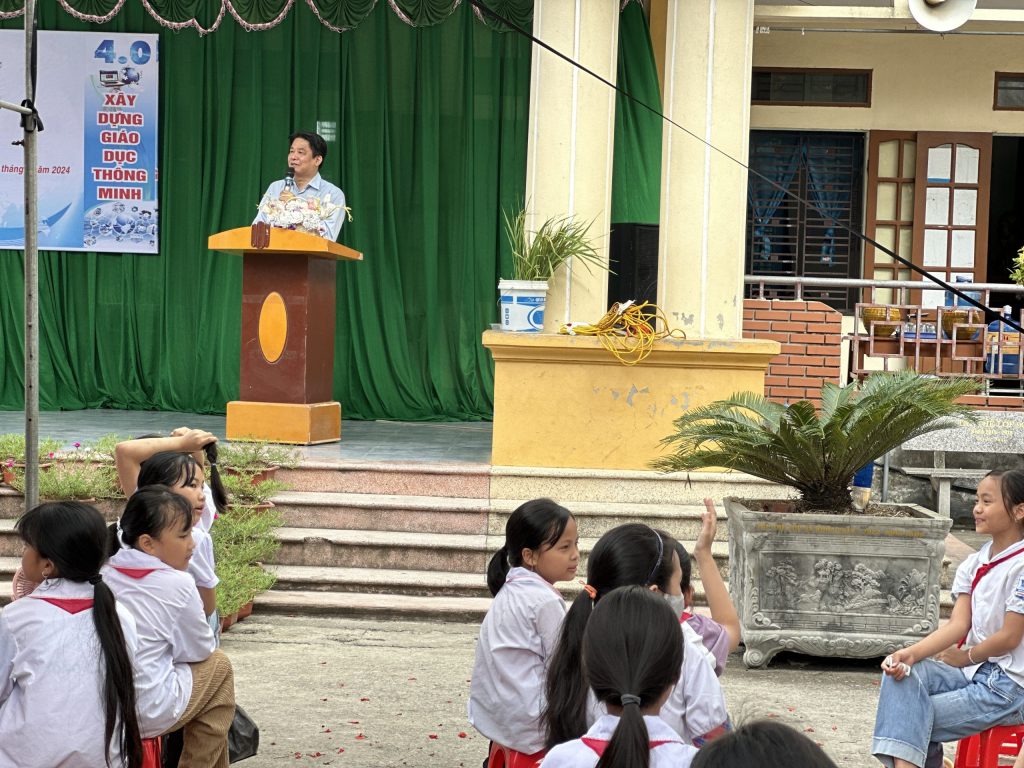
Exploring the Science of Rice
Next, students participated in a scientific activity to differentiate between glutinous rice and regular rice. They measured the size of rice grains to distinguish between the two types based on their size. This activity helped students understand the physical differences between rice varieties, enhancing their observation and scientific analysis skills. While many had heard of or could classify glutinous and regular rice, viewing these differences as measurable traits of rice plants was a new experience, helping them develop scientific thinking.
Modern Techniques in Rice Cultivation
Another scientific exploration involved super-fast seed germination technology. After soaking dry rice seeds in water for about 30 minutes, the seeds would sprout roots. This process helps farmers save 2-3 days of work. Students conducted experiments observing the roots re-emerging after about 20-30 minutes of soaking. This new seed treatment technology helps farmers save costs, water, and adapt to climate change.
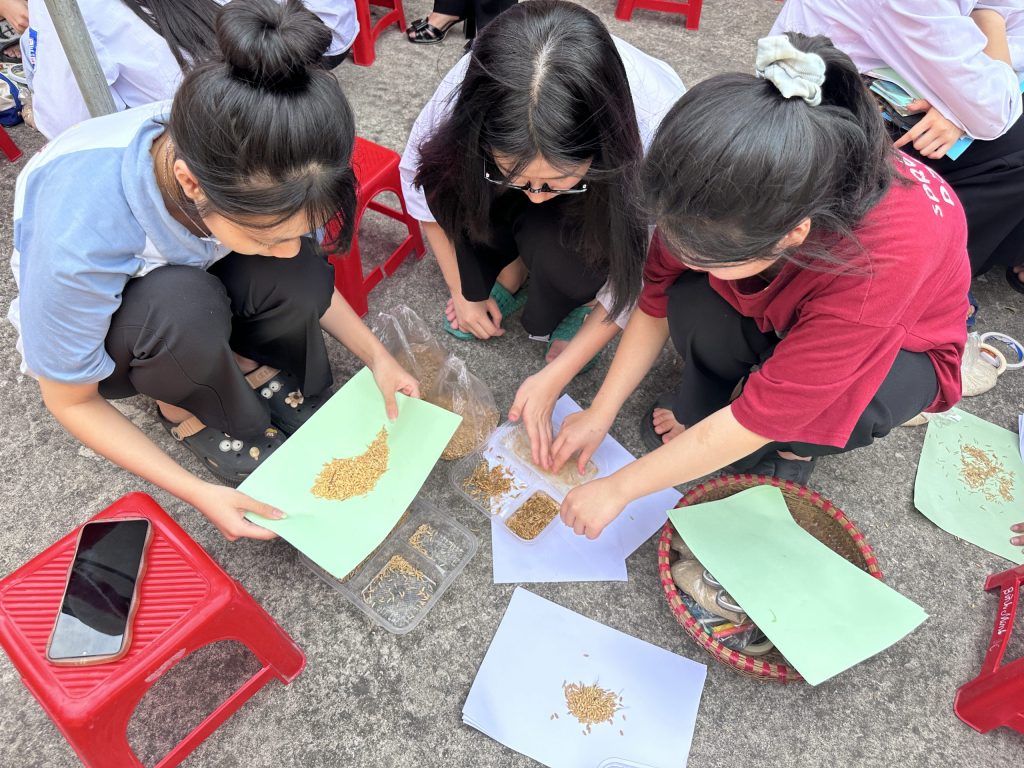
Engineering Design in Rice Production
One of the workshop’s most exciting challenges was the engineering design task, where students were tasked with designing and creating a device to separate rice, husk, and bran using materials like paper and other supplies. This challenge encouraged creativity and problem-solving skills, providing an opportunity to apply technical knowledge in a hands-on and engaging way. Students worked in groups, discussing and developing various methods to separate the components based on density, size, and other factors.
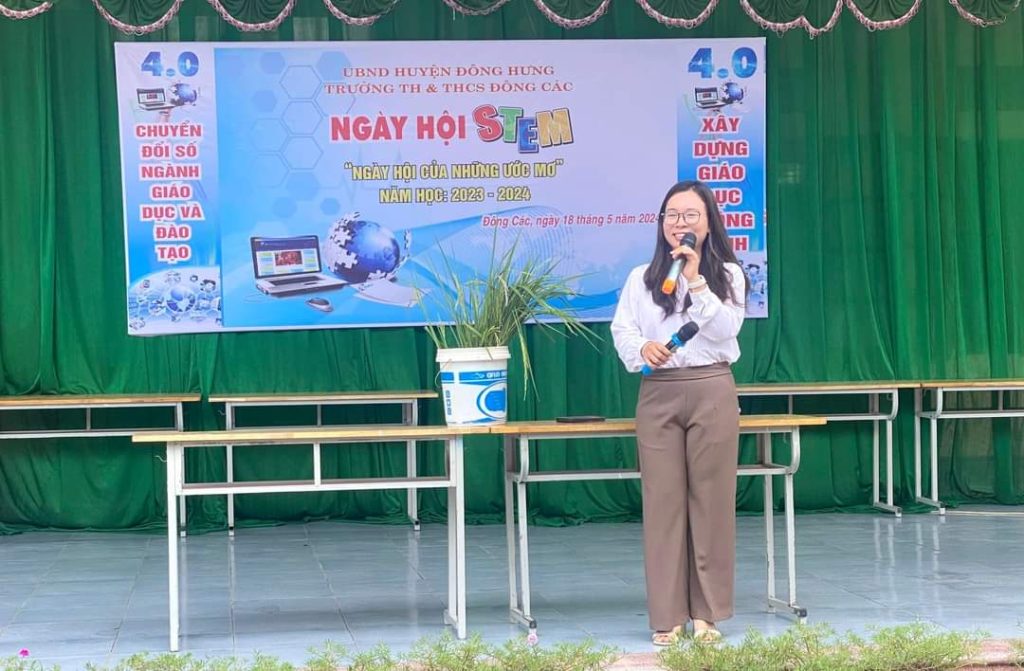
The STEM workshop succeeded in inspiring and engaging female students through exploring the science and technology behind rice cultivation. By combining theoretical knowledge with practical activities, students gained a deeper understanding of the complexities and innovations in rice agriculture. This real-world experience not only sparked their interest in STEM fields but also highlighted the crucial role of science and technology in preserving and enhancing traditional agricultural methods. Hosting the STEM workshop in Thai Binh provided female students with access to scientific and technological knowledge and a better understanding of local farming practices.

